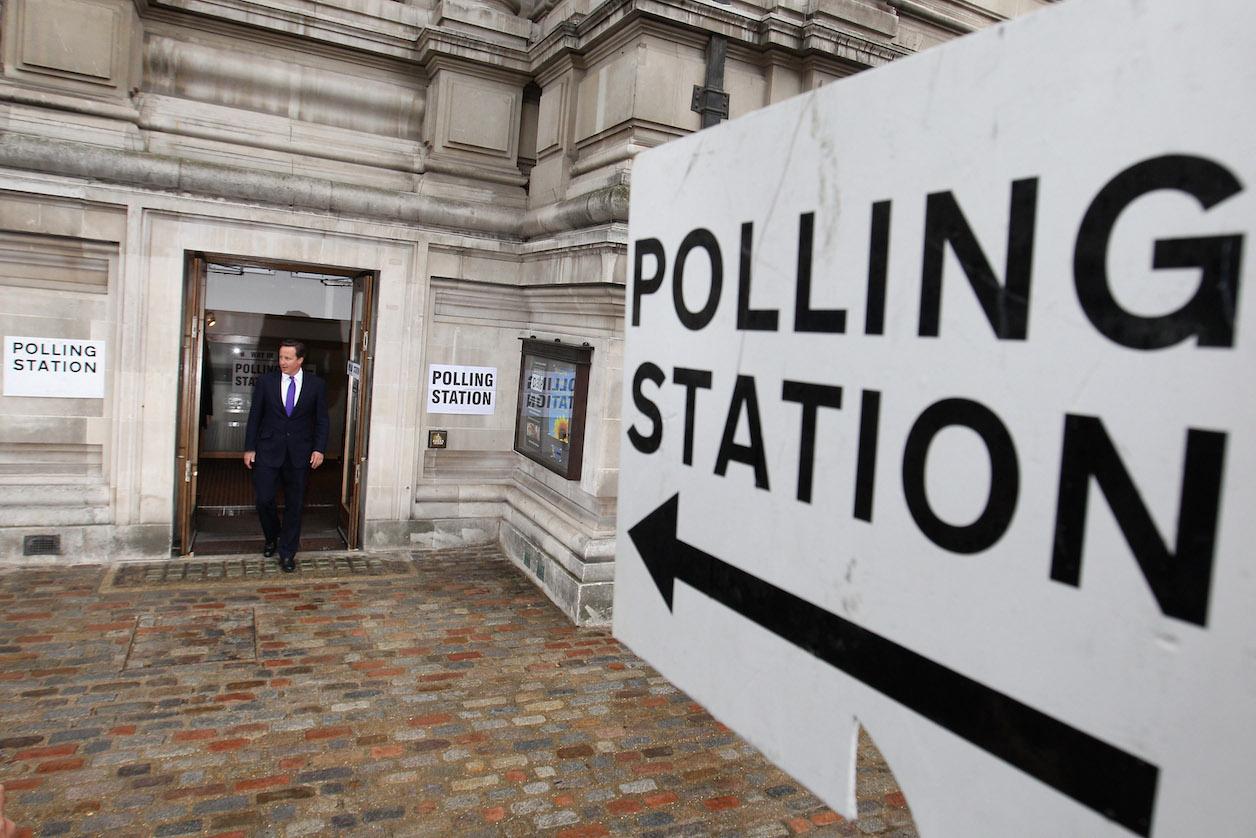The success of these candidates will tell us a lot about the UK’s future
British Prime Minister David Cameron left the polling station in the Methodist Central Hall in London after casting his vote in a referendum on May 5, 2011.
LONDON — The tightest UK election in recent memory is coming on May 7. Time to figure out who’s who.
As we’ve said before, these are parliamentary elections, not like America’s presidential one. Voters here will be casting ballots only for their members of Parliament, or MPs. The party with a majority of votes forms a government, alone or in coalition, and that party’s leader becomes prime minister.
With every single one of the 650 seats in the House of Commons up for grabs, it’s impossible to stay on top of every contest. Lots of reporters are eyeballing Conservative Prime Minister David Cameron and Labour Party leader Ed Miliband, but there are other politicians whose races could have a big impact on Britain's future. We’ve narrowed it down to three.
Boris Johnson, Uxbridge and South Ruislip
London’s charismatic, floppy-haired, eminently quotable Conservative mayor is running for this seat on the western edge of greater London. The question isn’t whether he’ll win — it’s a safe seat in a very Conservative district — but what he’ll do next.
The speculation is that Johnson’s real goal is 10 Downing Street: the Prime Minister’s Office. If that’s the case, becoming an MP is just the first step. He’s been making Hillary Clinton-esque demurrals about this for the last few years. But Johnson has certainly been conducting himself more like candidate for the top job than a city mayor — shedding his US citizenship and making statesman-like visits abroad.
More from GlobalPost: London Mayor Boris Johnson expounds on Boston's Olympic bid
Here’s how Prime Minister Boris could happen: If the Tories (as the Conservatives are also known) lose, incumbent David Cameron will almost certainly step down as party leader, prompting a battle for the leadership. Let’s say Johnson wins and stays in the post. He’d be in position to become prime minister if the Conservatives won the next general election.
Alex Salmond, Gordon
The former first minister of Scotland and head of the Scottish National Party (SNP) would have been the father of an independent Scotland, if September’s hard-fought referendum had passed. Salmond handed the SNP reins to deputy Nicola Sturgeon shortly after. In December, Salmond announced he’d seek a return to the UK’s legislature in the Palace of Westminster, where he was an MP for 23 years before serving in the Scottish Parliament.
The seat Salmond is going for in the well-heeled, rural Aberdeenshire constituency has been held by the Liberal-Democrats for 32 years. If he wins, he’ll be part of an expected political upheaval in Scotland with serious implications for British politics as a whole. For decades, Scotland has been a Labour Party stronghold. Labour took 41 of the country’s 59 parliamentary seats in 2010, with 11 going to the Lib-Dems and just six to the nationalist SNP.
The referendum was a major turning point for the SNP, though. Polls have predicted the party claiming up to 53 seats in next month’s vote, enough to make them a serious force to be reckoned with in Westminster. Salmond is one of the canniest politicians in Britain, and bookies have him as the favorite in his race, according to Sky News.
Nigel Farage, South Thanet
Nigel Farage is the leader of the anti-European Union, anti-immigration UK Independence Party, or UKIP. Since the last election, UKIP has moved from the fringes to become a genuine player in British politics, peeling disaffected voters from Labour and the Tories alike. Two Conservative MPs have defected to the party in the last year. UKIP now wants to win its first parliamentary seats outright.
The party’s success is thanks in large part to Farage himself. He’s a charismatic leader. Party membership has grown from 16,000 when he took over in 2006 to some 42,000 now. Farage has said that if he loses this race in a coastal area of Kent, he’ll step down as UKIP’s leader. It’s hard to imagine the party recovering from that loss, or another figure from its gaffe-prone ranks stepping in to lead.
Every day, reporters and producers at The World are hard at work bringing you human-centered news from across the globe. But we can’t do it without you. We need your support to ensure we can continue this work for another year.
Make a gift today, and you’ll help us unlock a matching gift of $67,000!
